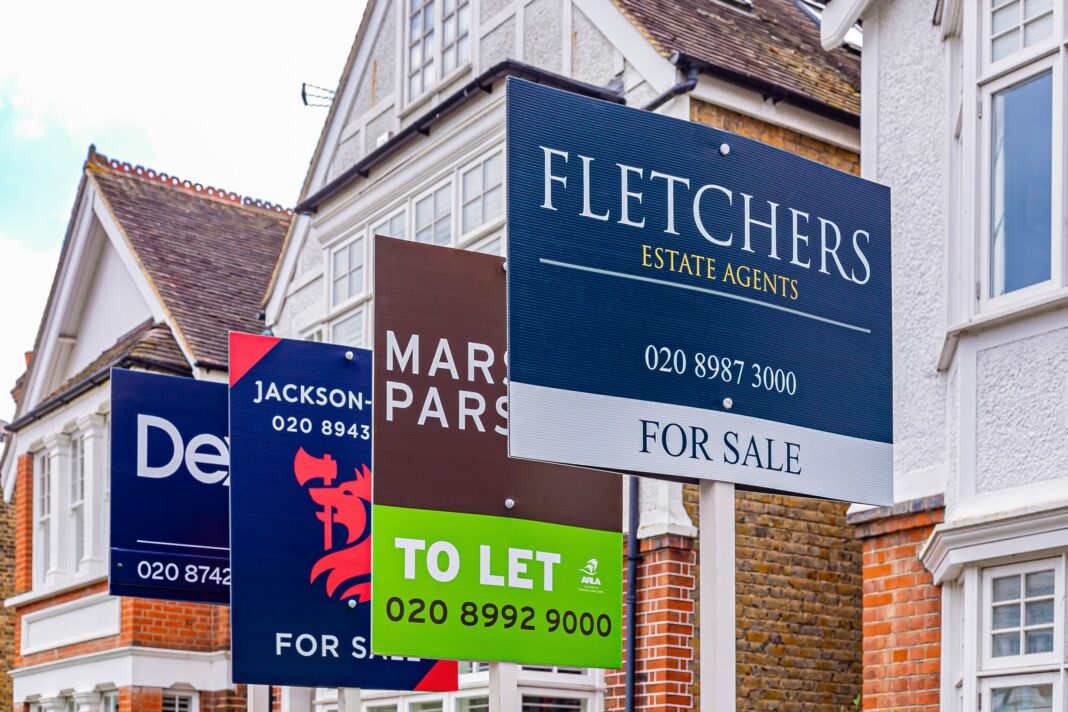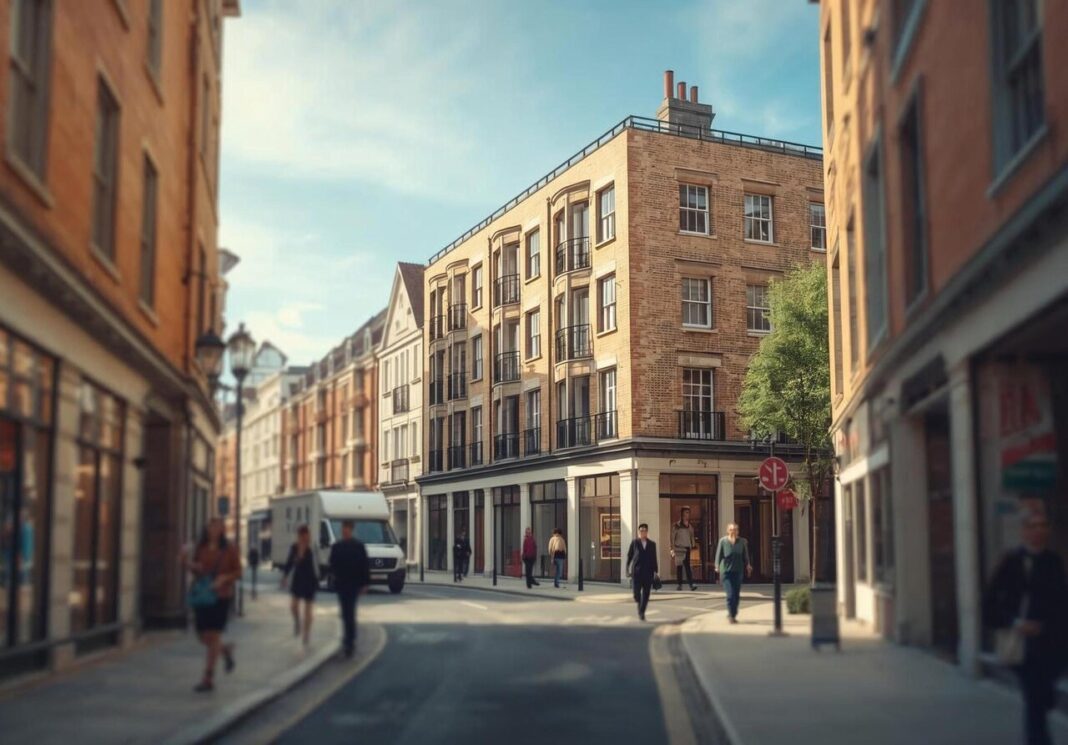Homes priced too high are taking more than twice as long to sell as correctly priced properties, according to Zoopla, which said the slowdown in house price growth over the summer has now stabilised.
The property portal’s latest House Price Index shows that agreed sales are up 5% on the year and buyer demand has risen 4% but the market remains firmly tilted in buyers’ favour as choice increases. The number of homes for sale is 10% higher than last year, holding back price growth.
Average UK house prices have risen by 1.3% in the past year to £270,600 – an increase of £3,560 – but this remains well below the 2.1% growth seen at the start of 2025.
The north of England continues to outperform the south. In July, the average time to sell a home in the North West and North East was 27 days, compared with a national average of 35 days. In the South, affordability pressures mean homes are taking 39 days to sell, on average.
GREATER CHOICE

Richard Donnell, executive director at Zoopla, says: “There is plenty of demand for homes and more people are looking to move.
“However, buyers also have much greater choice to choose from, especially across areas of southern England. There is a clear link between buyer choice and price inflation and how long it is taking homes to sell.
“Sellers need to understand local market conditions when considering how to market their home, setting the right price and how quickly they would like to sell. The risk of being too ambitious on price is your home taking more than twice as long to find a buyer – or not selling at all.
“We expect UK house price inflation to continue in a range of 1.5-2% over the rest of the year. There are signs that prices are firming in southern England but price growth is slowing across northern regions. The market continues to record seasonally strong sales as those selling their home seek to secure their next home. The market remains on track for five per cent more sales in 2025 at 1.15m.”
LONGER TO SELL
Homes requiring price cuts take 2.4 times longer to sell than those correctly priced at the outset. One in ten properties listed in July saw reductions – well above the five-year average of 6%.
Donnell warns sellers in southern coastal markets such as Truro, Exeter and Bournemouth face particularly stiff competition, with more than a quarter of homes on the market for over six months. By contrast, areas with constrained supply – including Dundee, Wolverhampton and outer London suburbs – are seeing stronger conditions.
The housing market is also being unsettled by speculation over tax reform ahead of the Autumn Budget. Proposals floated include scrapping stamp duty in favour of an annual property levy on homes worth more than £500,000, alongside a possible capital gains tax on sales of properties over £1.5 million.
Donnell adds: “History shows that tax changes can impact market activity and buyer expectations.”
INDUSTRY REACTION
 Jeremy Leaf, north London estate agent and a former RICS Chairman, says: “The market inevitably lost a little steam over the summer period with so many decision makers away and listings continuing to pile up.
Jeremy Leaf, north London estate agent and a former RICS Chairman, says: “The market inevitably lost a little steam over the summer period with so many decision makers away and listings continuing to pile up.
“Nevertheless, quality replaced quantity as we noticed agreed sales holding up well with little or no renegotiation although did take a little longer.
“Unfortunately perhaps the government do not appreciate that even rumours of a new property tax can have a detrimental impact on housing market confidence and activity which we certainly witnessed ‘on the ground’ since the story broke last week.”
TAX SPECULATION

Tom Bill, head of UK residential research at Knight Frank, says: “A price-sensitive housing market has become a whole lot more price-sensitive over the last fortnight thanks to the speculation around property taxes.
“With supply still outweighing demand as autumn approaches, we expect price growth this year to hover not far above zero.
“A November Budget means weeks of more speculation in a tiresome re-run of 2024 that will keep a lid on transaction activity and stamp duty revenue.”
FIRST-TIME BUYERS

Nathan Emerson, Chief Executive of Propertymark, says: “Stable house prices within the housing market are a welcome sign for groups such as first-time buyers, who can better take advantage of a period of steadiness.
“Despite property transactional taxes increasing in some nations and financial and economic pressures continuing for many, there still seems to be plenty of property choice for buyers.
“It remains important that sellers continue to have realistic price expectations and place their property on the market accordingly to help empower an efficient sales process.
“It is also important to consider the crucial role that housing plays within the wider economy, and it is positive to see commitments from all governments across the UK to deliver much-needed new housing stock to keep pace with predicted population growth.
“We are also hearing of future potential proposed changes regarding stamp duty. However, it is vital that tax reform is conducted in a way that does not penalise aspiring homeowners with additional costs that hinder their chances of moving house.”
CHALLENGING MARKET

Matt Thompson, head of sales at Chestertons, says: “Buyers used the summer holidays to review their finances and refine their search criteria or started booking viewings of homes they already shortlisted.
“The number of properties coming onto the market, however, has clearly decreased.
“Whilst there was a substantial increase in landlords selling up amid the Renters’ Rights Bill earlier this year, it was considered a momentary uplift that has now rebalanced.
“As a result, buyers might find it more challenging to secure a property within their budget and are advised to start their property search as early as possible.”
PRICE REDUCTIONS

Amy Reynolds, head of sales at Richmond estate agency Antony Roberts, says: “We are seeing a lot of price reductions, and those reductions do lead to sales.
“It’s a real challenge to get pricing right at the moment with all the political talk around potential tax changes, as well as the significant amount of stamp duty buyers face. London is very different to the rest of the country, and even within London we have micro-markets.
“Here, the mid-range market is still healthy, whereas it’s tougher at the first-time buyer level and at the very top end.
“When a property is initially overpriced, it can sit for a while, but once the price comes down to where buyers feel it should be, it will sell. That’s why we are still achieving sales in all price brackets, which does differ slightly from Zoopla’s national statistics – but that’s the nature of working in a small, highly specific market within a much larger one.”









